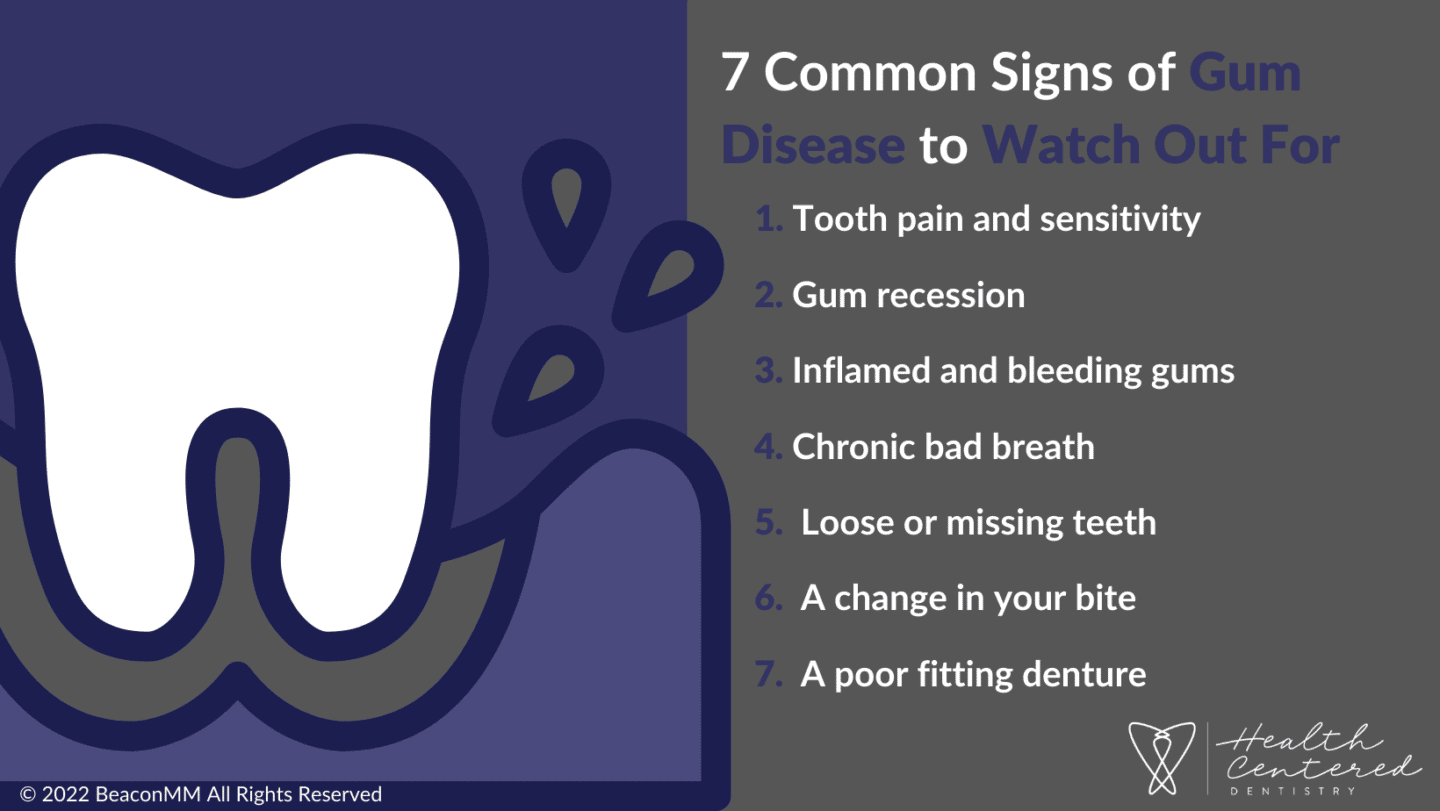Periodontal disease affects about 47.2% of adults aged 30 years or older in various ways. If and when it’s not treated properly, this condition can quickly turn into tragic tooth and bone loss. Not only is it detrimental to your mouth but also your overall health. And genetics factors into the equation.
When you’re concerned about the seriousness of your dental health, the right support and holistic dental treatment can help prevent periodontal disease. But early treatment is essential. The quicker you gain a clear perspective about your periodontal situation and the more you understand about being predisposed to the disease, the sooner you can be proactive and ensure the best overall health outcome for your future.
What can you do to tackle periodontal concerns and prevent the disease from progressing? It’s important to understand the science behind the phases of the condition and to seek a professional who will ensure proper treatment and proven remedies to help.
So, is periodontal disease genetic? Learn more important details below.
Are you interested in warding off dangerous periodontal disease? Schedule an appointment with Health Centered Dentistry today!
What Is Periodontal Disease?
Periodontal disease is a condition that may be the result of inflammation and infection of your gums and bone that supports your teeth. Periodontal disease presents major issues related to dental health if it goes untreated.
From tooth and bone loss to infection from gum disease that transfers into the bloodstream causing further issues related to your heart, lungs, and other areas of the body.
Is Periodontal Disease Genetic?
NIH studies prove there is considerable evidence suggesting there is indeed some genetic basis for the early onset forms of periodontal disease, stating that:
“The molecular abnormality and its genetic inheritance have been established in some cases of generalized pre-pubertal periodontitis. Family studies of juvenile periodontitis indicate
that this disorder is transmitted by autosomal recessive genes, although additional data indicate genetic heterogeneity in this clinically defined disease.”
Studies show that periodontal disease is characterized by an overaggressive inflammatory response to diverse stimuli. The disease appears to have a presence of a genetic component, especially for serious cases among family members. This information suggests that there could be a genetic link connecting the body’s immune response to the development of aggressive periodontitis. Even so, health researchers are still investigating the link between genetics and gum disease.
What Are Common Signs of Gum Disease?

Common signs of periodontal disease often begin with poor dental hygiene habits and result in the following common signs to look for:
- Teeth pain and sensitivity
- Gums pulling away from your teeth
- Inflamed, tender, and bleeding gums
- Bad breath or chronic halitosis that won’t go away
- Loose teeth
- A change in your bite and the way your teeth come together
- A change in the way your mouth guard or partial dentures fit
Smoking, not brushing or flossing properly, diet, stress, and medical conditions such as diabetes—all can influence the health of our gums. So, if you know you are considering periodontal disease genetics, you should first understand the various stages of the disease.
The Various Stages of Periodontal Disease
The best way to understand where your teeth are on the periodontal chart is to seek an expert. A holistic dentist can do a dental hygiene check and X-rays, understand your medical history, and help you to understand the various stages of periodontal disease.
Understanding the early signs, your family history, and maintaining the right preventative care will help you to ward off any concerns about your important health.
Periodontal Disease: Understanding the Stages
When your mouth hurts and you have suffered from symptoms related to periodontal disease or the progression of this disease, you will want to better understand not only a family history of periodontal disease but also how it progresses.
Here are the stages of periodontal disease from early to advanced cases:
- Gingivitis. Early stage where gums have become red and inflamed. They may also bleed. Periodontal disease is mostly seen in adults. This phase, caused by a buildup of plaque along the gum line, can often be reversible if caught early.
- Mild Periodontal Disease. This is the next phase where both the fibers that support the tooth roots and the bone itself will need to be treated through scaling and root planning. These techniques are used for deep cleaning to help prevent further concerns.
- Moderate Periodontal Disease. In this stage, periodontal disease has progressed to affect deeper pockets in your teeth and gums that encourage and breed bacteria and infection in your mouth. This can cause issues in not only your bones but also throughout your bloodstream.
- Advanced Periodontal Disease. Periodontitis is the advanced, most serious stage of periodontal disease where the gums in your mouth actually pull away from your teeth. You may experience bone loss, teeth may fall out, and bacteria and infection can worsen to a place that will affect your health in various difficult ways. When left untreated, this can lead to the need for dentures and could also seriously affect your health.
While there is evidence that periodontal disease can be genetic, it’s critical to also understand the signs above and how your holistic dentist can develop a plan to prevent further decay and periodontal issues.
Ensuring Proper Treatment and Periodontal Maintenance
Just like with any other health condition, the best approach to overcoming issues and failure in our well-being is through a proactive approach. Oftentimes, this means seeking professional assistance.
Depending on the stage of your teeth, a holistic dentist who specializes in a range of successful gum disease treatments can help significantly to prevent further complications.
Options include scaling, root planning, antimicrobial, and antibiotic treatments. Regular dental cleanings, proper nutrition, and avoiding irritants like tobacco chewing and smoking can help you protect the stability of your teeth.
Why Seek a Professional, Holistic Dentist
Maintaining proper dental health is critical for the health of your entire body. Studies have shown that there’s an undeniable link between gum disease and other serious health conditions like heart problems, cancer, strokes, and diabetes.
The first step is to seek a professional holistic dentist first for a periodontal phase check. Share with your dentist about your family’s health history and why you are concerned about this disease. Because if an infection or the progress of gum disease goes untreated, it can result in serious consequences of loose teeth, pain, sensitivity, bleeding gums, and even tooth and bone loss.
Gum disease is nothing to take lightly. Health Centered Dentistry takes your health very seriously and will work with you to offer the latest innovation and techniques for treating your teeth whether you’re seeking help for early situations or to prevent the progression of the disease itself.
Are you interested in warding off dangerous periodontal disease? Schedule an appointment with Health Centered Dentistry today!


